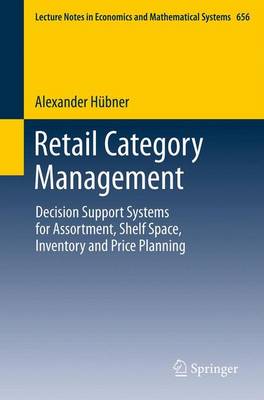Lecture Notes in Economics and Mathematical Systems
1 primary work
Book 656
Retail shelf management means cost-efficiently aligning retail operations with consumer demand. As consumers expect high product availability and low prices, and retailers are constantly increasing product variety and striving towards high service levels, the complexity of managing retail business and its operations is growing enormously. Retailers need to match consumer demand with shelf supply by balancing variety (number of products) and service levels (number of items of a product), and by optimizing demand and profit through carefully calibrated prices. As a result the core strategic decisions a retailer must make involve assortment sizes, shelf space assignment and pricing levels. Rigorous quantitative methods have emerged as the most promising solution to this problem. The individual chapters in this book therefore focus on three areas: (1) combining assortment and shelf space planning, (2) providing efficient decision support systems for practically relevant problem sizes, and (3) integrating inventory and price optimization into shelf management.
